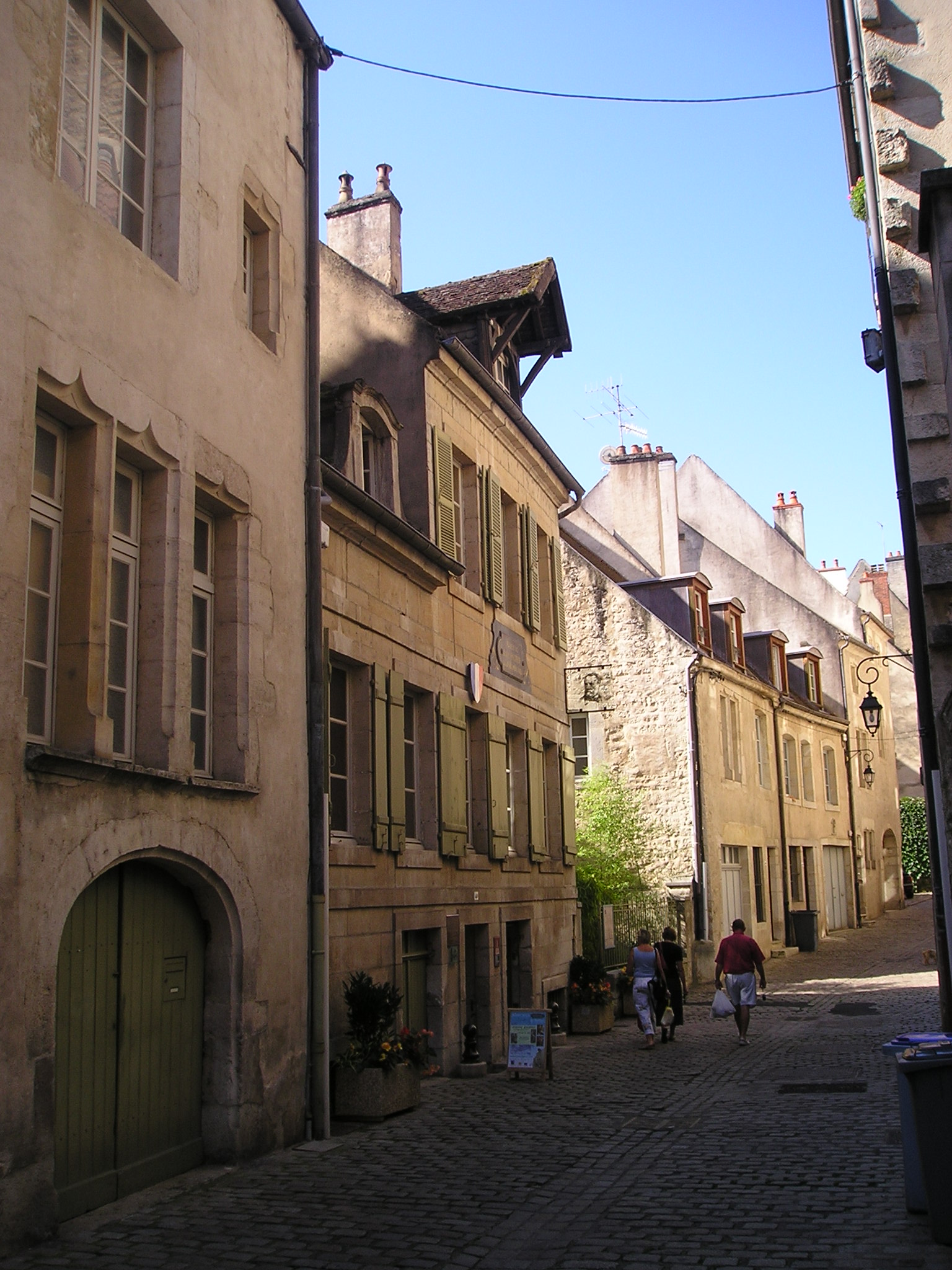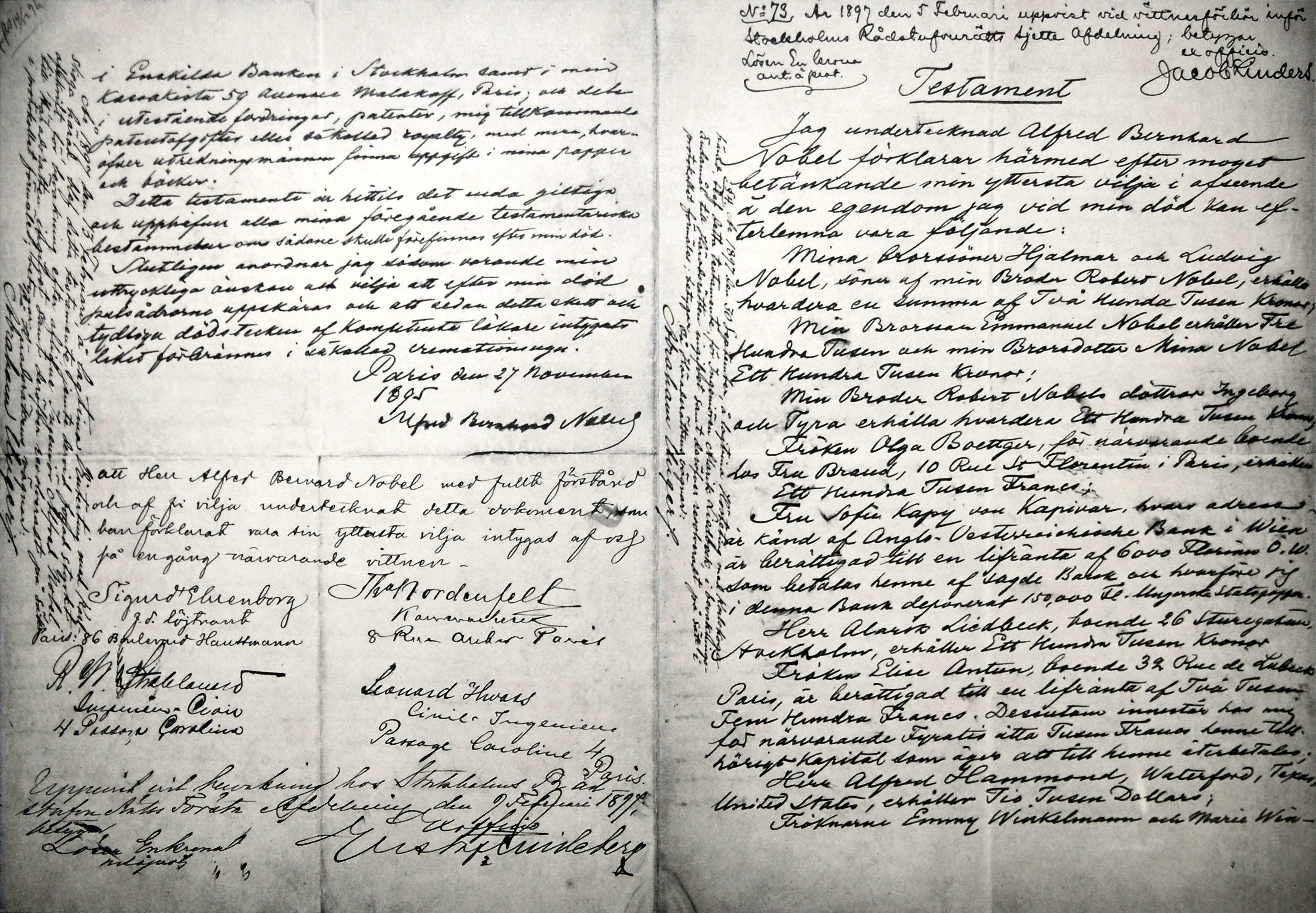|
Pasteur Institute
The Pasteur Institute (french: Institut Pasteur) is a French non-profit private foundation dedicated to the study of biology, micro-organisms, diseases, and vaccines. It is named after Louis Pasteur, who invented pasteurization and vaccines for anthrax and rabies. The institute was founded on 4 June 1887, and inaugurated on 14 November 1888. For over a century, the Institut Pasteur has researched infectious diseases. This worldwide biomedical research organization based in Paris was the first to isolate HIV, the virus that causes AIDS, in 1983. Over the years, it has been responsible for discoveries that have enabled medical science to control diseases such as diphtheria, tetanus, tuberculosis, poliomyelitis, influenza, yellow fever, and plague. Since 1908, ten Institut Pasteur scientists have been awarded the Nobel Prize for medicine and physiology—the 2008 Nobel Prize in Physiology or Medicine was shared between two Pasteur scientists. History The I ... [...More Info...] [...Related Items...] OR: [Wikipedia] [Google] [Baidu] |
Louis Pasteur
Louis Pasteur (, ; 27 December 1822 – 28 September 1895) was a French chemist and microbiologist renowned for his discoveries of the principles of vaccination, microbial fermentation and pasteurization, the latter of which was named after him. His research in chemistry led to remarkable breakthroughs in the understanding of the causes and preventions of diseases, which laid down the foundations of hygiene, public health and much of modern medicine. His works are credited to saving millions of lives through the developments of vaccines for rabies and anthrax. He is regarded as one of the founders of modern bacteriology and has been honored as the "father of bacteriology" and the "father of microbiology" (together with Robert Koch; the latter epithet also attributed to Antonie van Leeuwenhoek). Pasteur was responsible for disproving the doctrine of spontaneous generation. Under the auspices of the French Academy of Sciences, his experiment demonstrated that in sterilize ... [...More Info...] [...Related Items...] OR: [Wikipedia] [Google] [Baidu] |
Tetanus
Tetanus, also known as lockjaw, is a bacterial infection caused by ''Clostridium tetani'', and is characterized by muscle spasms. In the most common type, the spasms begin in the jaw and then progress to the rest of the body. Each spasm usually lasts a few minutes. Spasms occur frequently for three to four weeks. Some spasms may be severe enough to fracture bones. Other symptoms of tetanus may include fever, sweating, headache, trouble swallowing, high blood pressure, and a fast heart rate. Onset of symptoms is typically three to twenty-one days following infection. Recovery may take months. About ten percent of cases prove to be fatal. ''C. tetani'' is commonly found in soil, saliva, dust, and manure. The bacteria generally enter through a break in the skin such as a cut or puncture wound by a contaminated object. They produce toxins that interfere with normal muscle contractions. Diagnosis is based on the presenting signs and symptoms. The disease does not spread betwee ... [...More Info...] [...Related Items...] OR: [Wikipedia] [Google] [Baidu] |
Charles Chamberland
Charles Chamberland (; 12 March 1851 – 2 May 1908) was a French microbiologist from Chilly-le-Vignoble in the department of Jura who worked with Louis Pasteur. In 1884 he developed a type of filtration known today as the Chamberland filter or Chamberland-Pasteur filter, a device that made use of an unglazed porcelain bar. The filter had pores that were smaller than bacteria, thus making it possible to pass a solution containing bacteria through the filter, and having the bacteria completely removed from the solution. Chamberland was also credited for starting a research project that led to the invention of the autoclave An autoclave is a machine used to carry out industrial and scientific processes requiring elevated temperature and pressure in relation to ambient pressure and/or temperature. Autoclaves are used before surgical procedures to perform sterilizati ... device in 1879. References External links * Charles Edouard Chamberland and Louis Pasteur PasteurBrewi ... [...More Info...] [...Related Items...] OR: [Wikipedia] [Google] [Baidu] |
Émile Duclaux
Émile Duclaux (24 June 1840 – May 2, 1904) was a French microbiologist and chemist born in Aurillac, Cantal. He studied at the College of Aurillac, the Lycée Saint-Louis in Paris and at École Normale Supérieure. In 1862 he began work as an assistant in the laboratory of Louis Pasteur (1822–1895). During his career, he taught classes in Tours (1865), Clermont-Ferrand (1866), Lyon (from 1873) and Paris (from 1878). In Paris, he was a professor of meteorology at the Institute of Agronomy. For much of his career he was associated with the work of Louis Pasteur. In 1888 he was elected to the ''Académie des sciences'', and in 1894 became a member of the ''Académie Nationale de Médecine''. Duclaux's work was largely in the fields of chemistry, bacteriology, hygiene and agriculture. Duclaux initiated the custom of naming enzymes by adding the suffix "-ase" to the enzyme's substrate. His intention was to honor the first scientists (namely Anselme Payen, 1795–1871; and Jean ... [...More Info...] [...Related Items...] OR: [Wikipedia] [Google] [Baidu] |
École Normale Supérieure , a Japanese video-games developer/publisher
{{disambiguation, geo ...
École may refer to: * an elementary school in the French educational stages normally followed by secondary education establishments (collège and lycée) * École (river), a tributary of the Seine flowing in région Île-de-France * École, Savoie, a French commune * École-Valentin, a French commune in the Doubs département * Grandes écoles, higher education establishments in France * The École, a French-American bilingual school in New York City Ecole may refer to: * Ecole Software This is a list of notable video game companies that have made games for either computers (like PC or Mac), video game consoles, handheld or mobile devices, and includes companies that currently exist as well as now-defunct companies. See the lis ... [...More Info...] [...Related Items...] OR: [Wikipedia] [Google] [Baidu] |
Institut Pasteur De Tunis Vers 1900
An institute is an organisational body created for a certain purpose. They are often research Research is "creative and systematic work undertaken to increase the stock of knowledge". It involves the collection, organization and analysis of evidence to increase understanding of a topic, characterized by a particular attentiveness ... organisations (research institute, research institutes) created to do research on specific topics, or can also be a professional body. In some countries, institutes can be part of a university or other institutions of higher education, either as a group of academic department, departments or an autonomous educational institution without a traditional university status such as a "university institute" (see Institute of Technology). In some countries, such as South Korea and India, private schools are sometimes referred to as institutes, and in Spain, secondary schools are referred to as institutes. Historically, in some countries institu ... [...More Info...] [...Related Items...] OR: [Wikipedia] [Google] [Baidu] |
Nobel Prize In Physiology Or Medicine
The Nobel Prize in Physiology or Medicine is awarded yearly by the Nobel Assembly at the Karolinska Institute for outstanding discoveries in physiology or medicine. The Nobel Prize is not a single prize, but five separate prizes that, according to Alfred Nobel's 1895 will, are awarded "to those who, during the preceding year, have conferred the greatest benefit to humankind". Nobel Prizes are awarded in the fields of Physics, Chemistry, Physiology or Medicine, Literature, and Peace. The Nobel Prize is presented annually on the anniversary of Alfred Nobel's death, 10 December. As of 2022, 114 Nobel Prizes in Physiology or Medicine have been awarded to 226 laureates, 214 men and 12 women. The first one was awarded in 1901 to the German physiologist, Emil von Behring, for his work on serum therapy and the development of a vaccine against diphtheria. The first woman to receive the Nobel Prize in Physiology or Medicine, Gerty Cori, received it in 1947 for her role in elucidat ... [...More Info...] [...Related Items...] OR: [Wikipedia] [Google] [Baidu] |
Physiology
Physiology (; ) is the scientific study of functions and mechanisms in a living system. As a sub-discipline of biology, physiology focuses on how organisms, organ systems, individual organs, cells, and biomolecules carry out the chemical and physical functions in a living system. According to the classes of organisms, the field can be divided into medical physiology, animal physiology, plant physiology, cell physiology, and comparative physiology. Central to physiological functioning are biophysical and biochemical processes, homeostatic control mechanisms, and communication between cells. ''Physiological state'' is the condition of normal function. In contrast, '' pathological state'' refers to abnormal conditions, including human diseases. The Nobel Prize in Physiology or Medicine is awarded by the Royal Swedish Academy of Sciences for exceptional scientific achievements in physiology related to the field of medicine. Foundations Cells Although there a ... [...More Info...] [...Related Items...] OR: [Wikipedia] [Google] [Baidu] |
Nobel Prize
The Nobel Prizes ( ; sv, Nobelpriset ; no, Nobelprisen ) are five separate prizes that, according to Alfred Nobel's will of 1895, are awarded to "those who, during the preceding year, have conferred the greatest benefit to humankind." Alfred Nobel was a Swedish chemist, engineer, and industrialist most famously known for the invention of dynamite. He died in 1896. In his will, he bequeathed all of his "remaining realisable assets" to be used to establish five prizes which became known as "Nobel Prizes." Nobel Prizes were first awarded in 1901. Nobel Prizes are awarded in the fields of Physics, Chemistry, Physiology or Medicine, Literature, and Peace (Nobel characterized the Peace Prize as "to the person who has done the most or best to advance fellowship among nations, the abolition or reduction of standing armies, and the establishment and promotion of peace congresses"). In 1968, Sveriges Riksbank (Sweden's central bank) funded the establishment of the Prize in Ec ... [...More Info...] [...Related Items...] OR: [Wikipedia] [Google] [Baidu] |
Plague (disease)
Plague is an infectious disease caused by the bacterium '' Yersinia pestis''. Symptoms include fever, weakness and headache. Usually this begins one to seven days after exposure. There are three forms of plague, each affecting a different part of the body and causing associated symptoms. Pneumonic plague infects the lungs, causing shortness of breath, coughing and chest pain; bubonic plague affects the lymph nodes, making them swell; and septicemic plague infects the blood and can cause tissues to turn black and die. The bubonic and septicemic forms are generally spread by flea bites or handling an infected animal, whereas pneumonic plague is generally spread between people through the air via infectious droplets. Diagnosis is typically by finding the bacterium in fluid from a lymph node, blood or sputum. Those at high risk may be vaccinated. Those exposed to a case of pneumonic plague may be treated with preventive medication. If infected, treatment is with antibio ... [...More Info...] [...Related Items...] OR: [Wikipedia] [Google] [Baidu] |
Yellow Fever
Yellow fever is a viral disease of typically short duration. In most cases, symptoms include fever, chills, loss of appetite, nausea, muscle pains – particularly in the back – and headaches. Symptoms typically improve within five days. In about 15% of people, within a day of improving the fever comes back, abdominal pain occurs, and liver damage begins causing yellow skin. If this occurs, the risk of bleeding and kidney problems is increased. The disease is caused by the yellow fever virus and is spread by the bite of an infected mosquito. It infects humans, other primates, and several types of mosquitoes. In cities, it is spread primarily by ''Aedes aegypti'', a type of mosquito found throughout the tropics and subtropics. The virus is an RNA virus of the genus '' Flavivirus''. The disease may be difficult to tell apart from other illnesses, especially in the early stages. To confirm a suspected case, blood-sample testing with polymerase chain reaction is required. ... [...More Info...] [...Related Items...] OR: [Wikipedia] [Google] [Baidu] |






